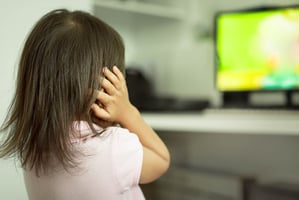Sensory Processing Test Correlates With Autism Severity, Study Finds
 |
These results support other recent studies showing that the brain’s auditory network experiences delays and deficiencies in developing children with ASD.
Molholm commented that the findings are “a first step toward developing a biomarker of autism severity –-an objective way to assess someone’s place on the ASD spectrum.” Current ASD diagnosis involves mainly subjective measures of a child’s behavior and cognition. The sensory EEG test might also help diagnose autism earlier, as brainwave responses to sound can be tested at young ages.
Click here to see a video of Molholm discussing her study in more detail.
To learn one explanation of why the visual tests did not correlate with ASD, see the Psychiatric News article “Visual Perception Appears Heightened in Autism.” More information is also available in the book Textbook of Autism Spectrum Disorders, by American Psychiatric Publishing.
(Image: Albert Einstein College of Medicine)





